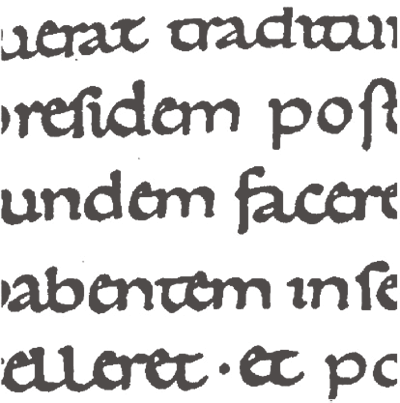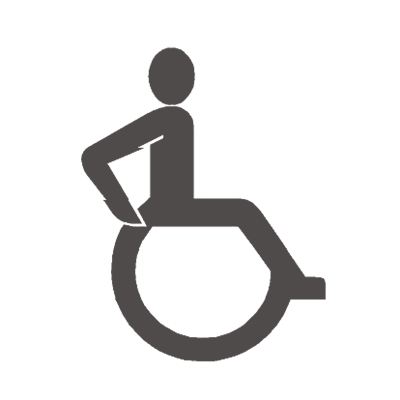-
Legality of work of foreigners in Poland: conclusions of inspections by the State Labour Inspectorate (PIP)read more
According to a report on the activities of the State Labour Inspectorate (text in Polish), 9,138 inspections were carried out in 2023, in which almost 40,000 foreigners were checked at to the legality of their employment.
Commonest irregularities identified by the State Labour Inspectorate (SLI)read moreOn 12 June 2024, the Chief Labour Inspectorate presented a report on the State Labour Inspectorate’s activities in 2023 to the Speaker of the Sejm (lower house of Polish parliament).
It shows that in 2023, the number of complaints made to the State Labour Inspectorate fell by more than 14%, compared to the previous year. Most complaints were to do with the following irregularities:
- failure to pay remuneration for work
- shortfalls in the payment of remuneration
- late payment of remuneration.
Draft amendments to the Trade Union Act - access to the workplaceread moreThe Ministry of Family, Labour and Social Policy is working on an amendment to legislation on collective labour law. The draft law on collective labour agreements and collective accords (whose most important assumptions - with regard to collective labour agreements we have already addressed in a previous flash) also contains a proposal for a significant amendment to the Trade Union Act.
The regulation on artificial intelligence has been published!read moreOn the 12 July 2024, the AI Act was published in the Official Journal of the European Union. It is the first comprehensive regulation that provides norms for the use of artificial intelligence. The regulation divides AI systems into four categories of risk: unacceptable, high, limited and low.
The AI Act introduces a number of new obligations, including for entities that use high-risk AI systems (which may affect employers). These include:
- Before putting into service or using a high-risk AI system at the workplace, deployers who are employers shall inform workers’ representatives and the affected workers that they will be subject to the use of the high-risk AI system. This information shall be provided, where applicable, in accordance with the rules and procedures laid down in Union and national law and practice on information of workers and their representatives.
- In addition, entities that use high-risk AI systems must entrust human oversight to natural persons who have the necessary competence, training and authority, as well as the necessary support.
Draft amendments to the Labour Code - seniorityread moreOn 9 July 2024, a draft bill on amendments to the Labour Code (UD59), dated 4 July 2024, was posted on the website of the Government Legislation Centre.
The draft extends the assumptions (which we wrote about here) to include the following:
- periods of employment are to include:
- training at a doctoral school,
- receiving a sports scholarship,
- drawing unemployment benefit,
- running an individual farm or working on such a farm;
Deadline for providing employers with information on the size of trade unionsread moreTrade unions have until Wednesday 10 July 2024 to submit information to employers on their size. The information is submitted as at 30 June 2024 and should include individuals:
- employed under contracts of employment,
- cooperating under civil law contracts.
New draft law on collective labour agreements and collective accordsread moreOn 25 June 2024, a new draft law on collective labour agreements and collective accords dated 20 June 2024 was published (legislative work list number: UC34).
The proposed provisions are intended to replace in its entirety Section XI of the Labour Code, which currently regulates collective labour agreements.
Procedures for internal notifications to be introduced already in SeptemberOn 24 June 2024, the Whistleblowers’ Act was published in the Journal of Laws of the Republic of Poland with most of its provisions taking effect on 25 September 2024.
Employers must now determine whether they are obligated to introduce procedures for internal notifications – we have prepared guidelines on how to check.
New database to record the entries and exits of foreignersread moreThe Ministry of the Interior and Administration has announced that it will introduce a system in 2025 for registering the entries/exits of non-EU nationals who cross the Polish border.
The Polish registry is to be linked to the European EES system, which is responsible for registering the entries and exits of non-EU nationals at the European Union’s external borders.
Minimum wage increase from 1 July 2024From 1 July 2024 the minimum wage will increase to PLN 4,300 gross and the minimum hourly rate to PLN 28.10 gross. This is the second change of remuneration in 2024.
The law on the protection of whistleblowers has been signed by the Presidentread moreOn Thursday, 20 June 2024, the legislative work concerning the implementation of the European Parliament and Council (EU) Directive 2019/1937 was completed. The President signed the Law on the Protection of Whistleblowers.
The law will now be published in the Official Gazette, which will trigger the start of the vacatio legis period. Most of the provisions will enter into force three months after the date of promulgation, most probably at the end of September 2024.
Will trade unions obtain information about an employer’s use of AI?read moreA bill to amend the Law on Trade Unions has been submitted to the Sejm (Polish parliament’s lower house) and on 11 June 2024 it was referred for a first reading in committees. The amendment intends to adapt legislation to new technological realities.
According to the draft, a trade union will be able to ask an employer about the “parameters, rules and instructions used by the algorithms or artificial intelligence systems that affect decision-making and that may have an effect on the conditions of work and pay, availability and continuation of employment, as well as on profiling”.
Minimum wage increase in 2025The Council of Ministers has adopted a proposal of the Ministry of Family, Labour and Social Policy on the level of minimum wage and minimum hourly rate in 2025.
From 1 January 2025, the minimum wage is to be PLN 4,626 gross and minimum hourly rate is to be PLN 30.20 gross.
The minimum wage is currently being addressed by the Social Dialogue Council and a final decision on its level should be made by 15 September 2024.
Increasing number of foreigners on the Polish labour marketread moreAccording to the latest (published on 11 June 2024) information from Statistics Poland (GUS), more than one million foreigners (1,015,100) were working in Poland at the end of December 2023. Their share of the total number of people working in Poland was thus 6.6%. This means an increase of 4.2% in the number of foreigners working in Poland over the past year (comparing statistics from January and December 2023).
The employee may be familiarised with his/her scope of duties on the intranetread moreThe Supreme Court has confirmed that an employer may familiarise an employee with his/her scope of duties by posting such document on the intranet. This results from the Supreme Court's ruling of 17 January 2024 (III PSK 26/23).
The case concerned an employee who accused his employer of posting his scope of duties on the intranet, as a result of which he was not clearly acquainted with it. The employee also pointed out that he had never signed a statement confirming that he had read the scope of duties.
The Law on the Protection of Whistleblowers – the Sejm has adopted the Senate’s amendments, and it is currently awaiting the President’s signatureread moreOn Friday, 14 June 2024, the Sejm (the lower house of Polish Parliament) passed a law on the protection of whistleblowers. Thus, a piece of legislation that does not relate to labour law will go to the President for signature. Under the whistleblowing procedure, legal entities will not have to deal with reports of bullying or discrimination. Employers will be entitled to consider such reports, but this will not be mandatory.
Legislative work on shopping Sundays continuesread moreThe first reading has taken place of the parliamentary bill amending the Act on Restriction of Trade on Sundays and Holidays and on Certain Other Days and the Labour Code Act.
Main assumptions:
- Increase in the number of trading Sundays – trading to be possible:
- on the first and third Sunday of each calendar month,
- on the first Sunday in December and the following two Sundays before Christmas Day, with the exception of the Sunday falling on 24 December,
- on the Sunday immediately preceding the first day of Easter - or, if it is the first or third Sunday in the month, also on the Sunday preceding it.
The President has signed the amendment to the law on assistance to Ukrainian citizens!read moreWork on amending the act on assistance to citizens of Ukraine has reached a conclusion. On 10 June, the President signed a law that:
- broadens the range of persons covered by the Act, to include juvenile children of Ukrainian citizens and of their spouses,
- extends the legal stay of Ukrainian citizens until 30 September 2025,
- extends until 30 September 2025 the possibility of obtaining temporary residence permits for a period of 1 year to persons who have not met all the statutory requirements, but have declared a specific purpose for their stay in Poland,
The Whistleblower Act – the Senate has removed labour law from the areas of law in which a whistleblower can report wrongdoingread moreOn Wednesday, 5 June, 2024, the Senate submitted changes to the whistleblower bill adopted by the Sejm – removing labour law from the list of areas in which wrongdoing can be reported. The bill will now return to the Sejm, which will decide whether to approve the change made by the Senate.
Allowing foreigners access to the Polish job market – legislative proposalread moreA proposal was posted on the website of the Government Legislation Centre on 23 May, 2024, for a bill of 15 May, 2024, on allowing foreigners access to the employment market. The bill simplifies and systematises the system of employment of foreigners in Poland, and is intended to streamline the procedure for legitimising employment, and eliminate abuse by employers of employees who are not Polish nationals.
Ustawa o ochronie sygnalistów przyjęta przez SejmW czwartek 23 maja 2024 r. Sejm przyjął ustawę o ochronie sygnalistów implementującą do polskiego porządku prawnego dyrektywę Parlamentu Europejskiego i Rady (UE) 2019/1937 z 23 października 2019 r. w sprawie ochrony osób zgłaszających naruszenia prawa Unii. Teraz ustawą zajmie się Senat.
Przepisy ustawy co do zasady mają wejść w życie po trzech miesiącach od jej ogłoszenia w Dzienniku Ustaw.
New obligations for employers in connection with the implementation of the CSRD directiveread moreLegislative work is underway on an amendment to the Act amending the Accounting Act, the Act on Statutory Auditors, Audit Firms and Public Supervision and Certain Other Acts.
One of the objectives of the amendment is to implement the Corporate Sustainability Reporting Directive (CSRD), which will result in a new obligation for employers to report on corporate sustainability. Depending on the number of employees, employers will be required to provide information on environmental, social and human rights issues and corporate governance. Analysis of the social issues will be important from an employment law perspective.
Assumptions of draft amendments to the Labour Code - seniorityread moreOn 13 May 2024, assumptions on the draft law on amendments to the Labour Code (project number UD59) appeared on the list of legislative and program work of the Council of Ministers. The proposed changes particularly include the following counted as part of the employment period:
- periods of work on the basis of an agency contract, contract of mandate or other contract for the provision of services to which, in accordance with the Civil Code, provisions relating to mandate apply,
Narrower scope of amendments to the Act on Foreignersread moreA new bill on amending the Act on Foreigners and certain other acts has appeared on the website of the Government Legislation Centre. The scope of the envisaged changes has been narrowed, focusing on regulations concerning treaty obligations resulting from Poland's membership in the European Union as well as those resulting from the case-law of the Court of Justice of the EU.
Other changes, which were included in the previous version of the draft amendment (e.g. concerning the digitization of proceedings on legalisation of residence in Poland), are to be regulated separately.
-
Plan to limit liability for illegally giving work to foreignersread more
In the Polish legal system, giving work to a foreigner who has not been authorised to undertake it, entails a liability for the employer. At present, Article 120 par. 1 of the Act on the Promotion of Employment and on Labour Market Institutions envisages a fine for illegally employing a foreigner. The fine may range from PLN 1,000 to PLN 30,000.
Amendments are now being planned to limit the extent of an employers’ liability, by changing the requirements for liability under this petty offence. The proposed amendments have been accepted by the Council of Ministers and are currently at the consultation stage.
Material scope of the Law on Protection of Whistleblowersread moreWhat can a whistleblower report?
On 24 June 2024, the Whistleblowers Protection Act was published in the Journal of Laws. After a delay of several years, Poland - as the last European Union country - implemented the Directive of the European Parliament and of the Council (EU) on the protection of whistleblowers into its legal order. Thus, the period of vacatio legis, which is three months for most provisions, commenced. They will enter into force at the end of September 2024.
The Act allows whistleblowers to make reports or public disclosures if they identify violations of the branches of law set out in the Act. It is therefore worth answering the seemingly trivial question of what matters a report can address.
Important changes regarding the legalisation of work and stay of Ukrainian citizens in Polandread moreOn 1 July 2024, another amendment to the Act of 12 March 2022 on assistance to citizens of Ukraine in connection with the armed conflict in that country will come into force. It introduces a number of important changes concerning the legality of residence and employment of Ukrainian citizens in Poland.
Changes regarding stay
The most important change in the amendment is an extension until 30 September 2025 of:
- the period of legal residence in Poland of Ukrainian citizens under temporary protection (who arrived legally in Poland starting from 24 February 2022 and declared their intention to stay in Poland),
Care leave - documentation required from the employerread moreCare leave, introduced into the Labour Code on 26 April 2023 is an employee entitlement that appeared relatively recently in the Polish legal order (we wrote about its granting in the article Care Leave). As a result, there is still no established case law or practice on the application of provisions defining rules for its granting. Nevertheless, every employer should consider appropriate solutions if receiving a request from an employee for care leave.
Exit interviews and regulations on the processing of personal dataread moreExit interviews, namely interviews which employers hold with employees whose employment is ending, are widely used by HR departments and may provide useful information regarding managing the workplace. In today’s piece, we will take a look at exit interviews from the perspective of data protection legislation.
Sanctions and claims envisioned in the draft Whistleblower Protection Actread moreOn 23 May 2024, Parliament adopted the long-awaited draft law on the protection of whistleblowers (which is supposed to implement the European Parliament (EU) Directive 2019/1937 on the protection of the rights of whistleblowers of 23 October 2019). After more than two years after the deadline for implementing the EU legislation, it seems likely that employers (and whistleblowers) will finally live to see legislation that has caused them so much concern.
Admittedly, the bill still must be passed by the Senate and then signed by the President before it can enter into force. However, many significant changes to its content are unlikely.
The draft law provides for a broad package of criminal sanctions and claims for persons to whom its provisions have been incorrectly applied. In view of the imminent entry into force of the whistleblower provisions, it is certainly worthwhile to become familiar with the potential consequences of violating them.
New Occupational Health & Safety (OHS) and Ergonomics Regulations for Workplaces Equipped with Screen Monitorsread moreBy 17 May 2024, employers must adapt workstations that existed before 17 November 2023 to the new OHS and ergonomics requirements resulting from the amended provisions of the Regulation of the Minister of Labour and Social Policy of 1 December 1998 on Occupational Health & Safety at Workplaces Equipped with Display Screen Monitors.
The creation of a new workstation as of 17 November 2023 means that the employer must apply the amended legislation from the outset.
Procedure for internal reporting in light of the draft whistleblower protection billread moreThe draft bill on the protection of whistleblowers, published on 17 April 2024, intended to implement Directive (EU) 2019/1937 of the European Parliament and of the Council of 23 October 2019 on the protection of whistleblowers, provides detailed guidelines on requirements that obliged employers must meet in establishing internal reporting procedures.
Applicable scope of the law on protection of whistleblowersread moreOn 17 April 2024, another bill on the protection of whistleblowers was submitted to the Lower House of Parliament (Sejm). The law is intended to implement the Directive of the European Parliament and of the Council (EU) 2019/1937 of 23 October 2019 on the protection of whistleblowers into the Polish legal order. After more than two years of work, at this session the government adopted what seems to be the final version of the draft.
Important amendments to the Foreigners Actread moreA few days ago, a bill to amend the Foreigners Act appeared on the legislative agenda of the Polish Council of Ministers. Work on the bill is expected to be completed in the second quarter of 2024. It provides for changes in several important areas, including:
- Implementation into Polish law of Directive (EU) 2021/1883 of the European Parliament and of the Council of 20 October 2021 on the conditions of entry and residence of third-country nationals for the purposes of highly qualified employment (EU Blue Card)
- Electronic filing of applications for temporary residence permits, permanent residence permits and long-term EU resident permits, instead of filing these applications in paper form in person at the province office.
Unauthorised access to employees’ personal dataread moreThis is the fourth in a series of articles in which we discuss the duties of a data controller with respect to data protection breaches in the employment context, drawing on Guidelines 01/2021 on Examples regarding Personal Data Breach Notification adopted on 14 December 2021 (version 2.0) from the European Data Protection Board (EDPB).
Leave from work due to force majeureread moreSince 26 April 2023 the Labour Code has allowed leave from work due to force majeure. The introduction of this institution was mandated by the so-called Work Life Balance Directive (Directive 2019/1158 of the European Parliament and of the Council (EU) of 20 June 2019 on work-life balance for parents and carers and repealing Council Directive 2010/18/EU).
What if an employee loses a laptop?read moreThis is the third in a series of articles in which we discuss the duties of a data controller with respect to data protection breaches in the employment context, drawing on Guidelines 01/2021 on Examples regarding Personal Data Breach Notification adopted on 14 December 2021 (version 2.0) from the European Data Protection Board (EDPB).
Carer's leaveread moreCarer's leave was introduced into the Labour Code on 26 April 2023 by the Act amending the Labour Code (LC) and certain other acts of 9 March 2023. The Act was intended to introduce two directives into Polish law:
- Directive (EU) 2019/1152 of the European Parliament and of the Council of 20 June 2019 on transparent and predictable working conditions in the European Union
- Directive (EU) 2019/1158 of the European Parliament and of the Council of 20 June 2019 on work-life balance for parents and carers and repealing Council Directive 2010/18/EU.
When a former employee takes data from the companyread moreThis is the second in a series of articles in which we discuss the duties of a data controller with respect to data protection breaches in the employment context, drawing on Guidelines 01/2021 on Examples regarding Personal Data Breach Notification adopted on 14 December 2021 (version 2.0) from the European Data Protection Board (EDPB).
No more asymmetry in wage negotiations?read moreIn the current Polish labour market, disclosure of salaries by employers is standard only in certain industries, particularly in the IT sector. Many employers do not disclose salary information to protect company secrets. Hence, it appears, that the norm is not to disclose salary ranges in recruitment advertisements, use of salary secrecy provisions and for employers to increasingly rarely set pay grades, which translates into less disclosure of salaries in organisations.
When an employment agency falls victim to a cyberattackread moreResponding appropriate to a data breach is one of the fundamental duties of data controllers under the EU’s General Data Protection Regulation (GDPR). But practice shows that complying with these duties often poses major problems for data controllers, including when the breach occurs in an employment context. These difficulties include in particular assessing:
- Whether a breach has occurred
- The risk associated with the breach
- What legal duties are imposed on the data controller in relation to the breach
- What measures should be implemented in connection with the breach.
Pay Transparency Directive: Strengthening the principle of equal pay in the European Unionread moreDirective (EU) 2023/970 of the European Parliament and of the Council to strengthen the application of the principle of equal pay for equal work or work of equal value between men and women through pay transparency and enforcement mechanisms was adopted on 10 May 2023. What new obligations will employers face? How does EU law understand equal pay?
Recruitment of a foreigner and personal data - what you can and should ask the candidate about and at what stage?read moreFor a recruiting employer, a candidate’s professional competence is crucial. Equally important, however, is sometimes the timing of starting work.
The start date is affected not only by the notice period for the candidate's current employment. In the case of candidates who are citizens of third countries (i.e., outside the European Economic Area or Switzerland), the need to legalize their stay and work in Poland matters.
Act on foreigners: voluntary departure and other changesread moreOn 21 March 2023, the President signed the Act of 9 March 2023 Amending the Act on Foreigners and Certain Other Acts. The amendment was published in the Journal of Laws on 23 March 2023 and, with certain exceptions, will enter into force 14 days after its publication. The purpose of the amendment is to ensure the application of Regulations 2018/1860 and 2018/1861, dated 28 November 2018, of the European Parliament and of the Council (EU).
Co-financing of in vitro as an employee benefitread moreInfertility treatment using the in vitro method entails costs which, due to non-reimbursement by the National Health Fund, for many people constitutes an enormous expense, often impossible to cover with own funds. Although there are local government support programmes in some Polish cities, subsidies that can be obtained from them do not cover all costs and apply only to selected groups of people.
New law on the employment of foreigners - what significant changes does the draft introduce?read more,vOn 13 September 2022, a draft law on the employment of foreigners (list no: 400) appeared on the website of the Government Legislation Centre. It is primarily intended to be comprehensive legislation regulating key issues concerning the employment of foreigners, currently scattered across various laws and regulations. As indicated in the explanatory memorandum to the draft, it is also intended to streamline procedures and shorten waiting time for decisions.
Remote work vs. personal data processingread moreThe upcoming amendment to the Labour Code on remote work is expected to comprehensively regulate a number of issues and relationships between employer and employee, significantly changing the existing legal landscape for performing work from home. The amendment also touches on issues of processing of personal data.
Christmas and New Year's Eve on-call dutyread moreThe Christmas and New Year period forces a change in work organisation in many companies. For many undertakings the turn of the year is a holiday period. This is particularly true for production plants, where starting up and maintaining full-scale production in this period is often economically insensible. However, reducing production does not mean that the machinery park can be left without any supervision.
-
Changes in immigration regulations
There are a lot of changes in immigration regulations. How to navigate them? Take a look at our continually updated guide.
Citizen of UkrainePolish ID number (PESEL) (UKR)Notification on hiring of a citizen of Ukraine -
Pay transparency
Directive (EU) 2023/970 of the European Parliament and of the Council of 10 May 2023 to strengthen the application of the principle of equal pay for equal work or work of equal value between men and women through pay transparency and enforcement mechanisms
Adoption of the directiveText of the directive (on EUR-lex)
Pay transparency in the EU (on the European Council website)
No more asymmetry in wage negotiations? (on HRlaw.pl)
Implementation of the directiveReports of medium and large employersEmployers with 250 employees or more will file first reports by 7 June 2027 and every year thereafter
Employers with 150 to 249 employees will file first reports by 7 June 2027 and every three years thereafter
StatisticsThe member states will provide Eurostat with national data allowing the calculation of the wage gap on an annual basis from 31 January 2028 (for 2026) and every year thereafter
Reporting by statesThe member states will provide the European Commission with data on the wage gap obtained from employers and collected as a result of complaints filed by employees by 7 June 2028 and every two years thereafter
Reports of small employersEmployers with 100 to 149 employees will file first reports by 7 June 2027 and every three years thereafter
At the same time, it is the deadline for member states to report on the application of the directive and its impact in practice
Commission ReportThe European Commission will report to the European Parliament and the Council (EU) on the implementation of the directive, along with possible legislative proposals



















